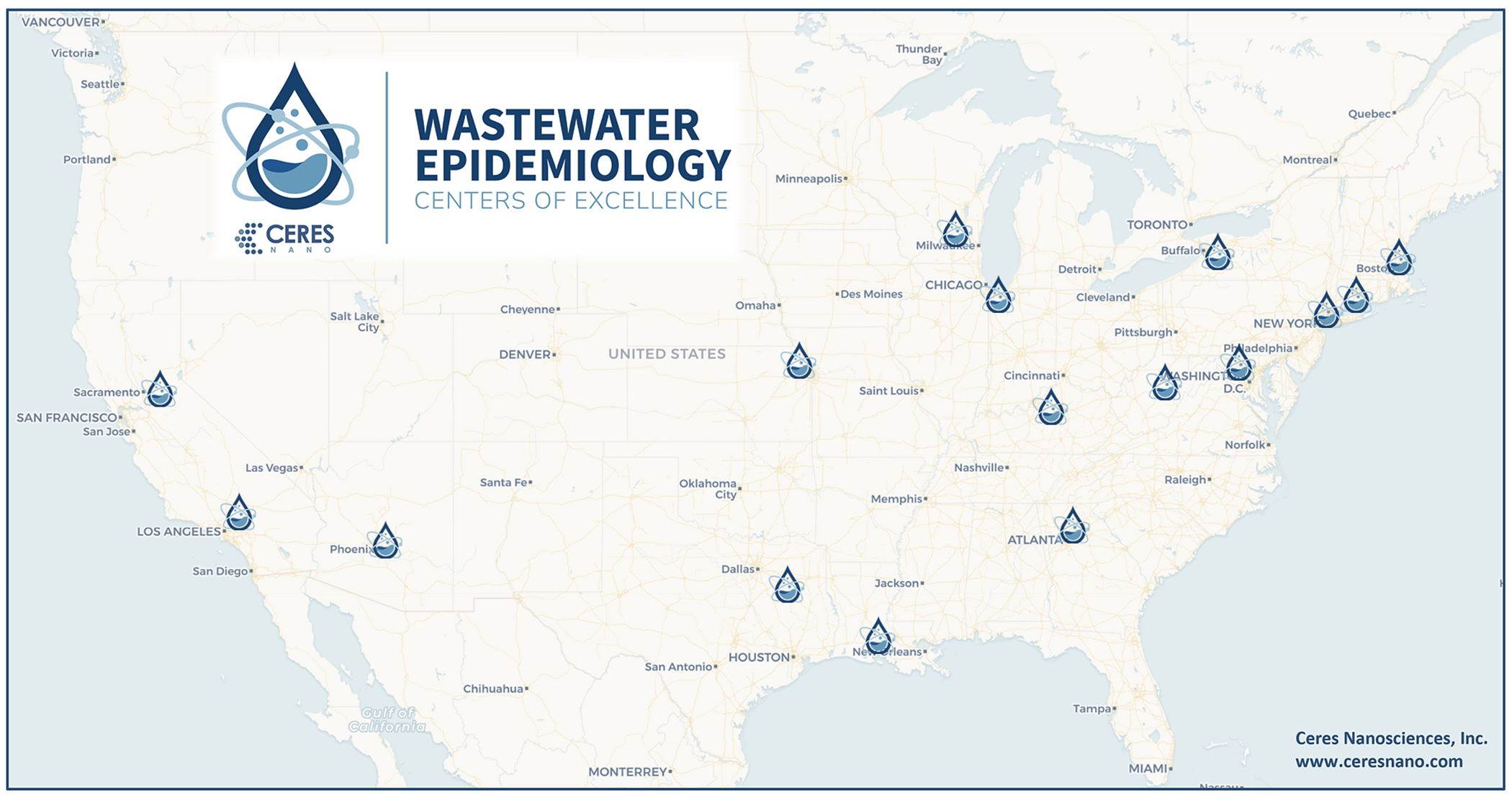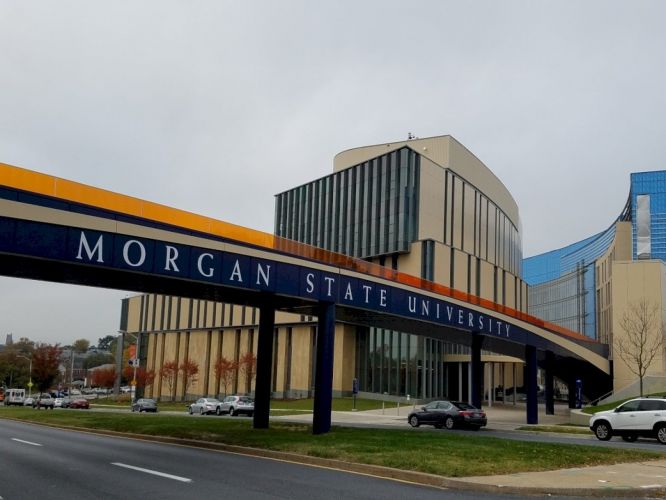By Morgan State University Newsroom
Morgan State University announced its selection to the Wastewater Center of Excellence Program offered by Ceres Nanosciences (Ceres). Through its participation in the program, the University’s Biology Department, housed within its School of Computer, Mathematical and Natural Science (SCMNS), will conduct wastewater-based epidemiology surveillance and testing to improve public health surveillance and resource allocation. Additionally, Morgan, the first Historically Black College or University (HBCU) to join the program, will receive advanced technology and training to establish an innovative wastewater-based surveillance platform, furthering its commitment to scientific innovation and community impact.
Wastewater-based epidemiology (WBE) is a cutting-edge field that utilizes the analysis of wastewater samples to monitor the presence and prevalence of pathogens within a community. By detecting genetic markers of viruses, such as SARS-CoV-2, in wastewater, researchers can gain valuable insights into the overall health trends of a county or city. WBE supports decision-making for resource allocation at a neighborhood level and enables targeted public health interventions in various settings, including college dorms, skilled nursing facilities, correctional facilities, K-12 schools, summer camps, and airports.
“Participating in the Ceres Nanosciences Wastewater Center of Excellence Program aligns perfectly with our institution’s dedication to advancing scientific research and serving the needs of our community,” said Paul B. Tchounwou, Sc.D., dean of the SCMNS. “Wastewater-based epidemiology offers an innovative approach to public health surveillance, enabling us to make data-driven decisions and allocate resources more effectively. We are excited to contribute to this field and empower our students to engage in impactful research.”
The Center of Excellence Program is part of a federally funded National Institutes of Health (NIH) RADx® initiative which currently supports an existing network of 16 sites comprising public health labs, non-profit labs, university labs, and commercial testing labs in 14 states. Morgan is among the five additional sites added to the expanding network of centers of excellence.

According to Samendra Sherchan, Ph.D., associate professor of Biology at Morgan and director of the new center, acceptance into the program requires meeting stringent criteria set forth to enable the successful implementation and operation of a wastewater-based surveillance platform and examination. The University’s demonstrated capabilities include improving access to wastewater-based surveillance for underserved populations, implementing high-throughput surveillance capable of processing at least 50 samples per day, utilizing dPCR or ddPCR testing methods, conducting variant monitoring, and collaborating with local and state public health authorities.
As part of the program, Morgan’s Biology Department will receive the Nanotrap® Microbiome A Particles and Nanotrap Enhancement Reagent, liquid handling equipment and consumables, and dedicated field applications support. These resources will facilitate the installation and training process, ensuring a seamless transition into conducting wastewater analysis. During the start-up phase, all necessary consumables for concentrating viruses from wastewater, including the Nanotrap® particles, will be provided by Ceres.
Moreover, Morgan’s participation in the program will offer numerous opportunities for undergraduate and graduate students to engage in WBE research. By involving students in this rising field of study, the university aims to foster scientific curiosity, develop critical thinking skills, and cultivate the next generation of scientists, engineers and public health professionals.
Offering additional insight on the benefits of the program, Dr. Sherchan added, “With the addition of the Ceres Nanosciences Wastewater Center of Excellence, we hope to seek further funding support from the state to establish longitudinal WBE research for emerging pathogens.” This expansion will enable the Morgan to deepen its impact on public health, address emerging pathogens, and contribute invaluable insights to safeguard communities while advancing resiliency.





